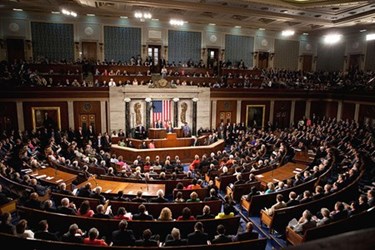21st Century Cures Prompts Conflicting Views Over Public Safety
By Jof Enriquez,
Follow me on Twitter @jofenriq

Some physicians and consumer groups are claiming that certain provisions of the 21st Century Cures Act could undermine public health safety by introducing unsafe drugs and medical devices to the market. In particular, opponents of the legislation question regulatory changes that would allow companies to forego clinical trials, use a new expedited process for breakthrough devices, and utilize third-parties — instead of the FDA — to show evidence on device safety.
In New York Times op-ed column, cardiologists Rita F. Redberg and Sanket S. Dhruva criticize how the new law would let manufacturers forgo pre-market clinical trials in favor of other sources – such as case studies or medical journal articles – to prove their products safe and effective.
"The legislation, disingenuously titled the 21st Century Cures Act, would it make it possible for companies that produce high-risk medical devices to submit evidence of safety and efficacy based on sources other than clinical trials, including case histories (i.e., the experience of individual patients)," the cardiologists write. "In other words, anecdotal evidence, rather than scientific studies, could be used to approve devices."
The National Physician Alliance (NPA) expressed the same concern about reliance on sources that may not stand up to rigor. Through a letter co-signed by consumer advocacy groups and addressed to the U.S. House of Representatives, the NPA points to the increasing amount of research misconduct and shortcomings identified by FDA in recent years, and states that "FDA reliance on journal articles as the sole basis for device approvals, as permitted under Section 2222, could prevent the FDA from learning of important problems with clinical testing, which could lead to serious patient harm."
The NYT op-ed also alludes to potential abuse of the law's new expedited approval process for "breakthrough" devices for which no alternatives exist.
"The legislation defines ‘breakthrough’ loosely, creating a perverse incentive for manufacturers to use this term both to take advantage of the faster approval process and as a marketing gimmick," the authors write.
Another contentious provision of the 21st Century Cures Act permits medical device manufacturers to pay third-party, non-governmental organizations to assess and certify the safety and effectiveness of new versions of devices already in the market, in lieu of FDA submission for approval of changes made by the manufacturer.
"This flagrant conflict of interest would make it impossible for physicians or patients to have trust in the safety or effectiveness of updated medical devices," the authors of the NYT op-ed add.
Writing for the New England Journal of Medicine (NEJM), Dr. Jerry Avorn and Dr. Aaron S. Kesselheim praised the 21st Century Act for boosting NIH funding. However, they say provisions that alter how the FDA regulates drugs and devices would undo the gains made in the past decades towards better public health safety.
"Over the past 80 years, this country's regulatory approach has embraced steadily improving criteria for accurately assessing therapeutic efficacy and risk. Patients and physicians would not benefit from legislation that instead of catapulting us into the future, could actually bring back some of the problems we thought we had left behind in the 20th century," they write in the NEJM article.
Proponents of the 21st Century Cures Act claim patients would eventually benefit from life-saving technologies that would be available to the American public sooner by revamping an outdated and plodding regulatory process. The extension in NIH research funding – $8.75 billion over the next five years – also could help the United States keep up in the medtech and biomedical innovation race.
“The 21st Century Cures Act represents an important and significant first step toward strengthening the American innovation ecosystem." says Stephen J. Ubl, president and CEO of the Advanced Medical Technology Association (AdvaMed), in a statement. “America’s medical technology companies are central to the development of innovative devices and diagnostics that will provide the life-saving, life-enhancing treatments of the future. Patient access to advanced medical technology generates efficiencies and cost savings for the health care system and improves the quality of patient care."
